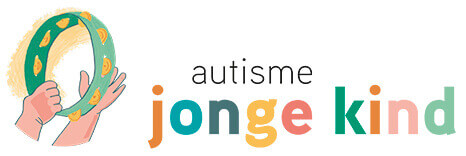
Discussing your initial concerns
If you wish to discuss your initial concerns about your child, you can do so initially with:
People in your own network
People in your community are often easy to reach. Think of family members, friends and acquaintances. They can be an important, low threshold source of support in your initial concerns.
Although they probably do not have specific substantive knowledge, they can think along with you. However, some parents will feel little support from people close to them. They encounter a lack of understanding with comments such as: 'that's not so bad' or 'mine does that too'. If you yourself feel that there is something the matter with your child, try to trust your own feelings.
The leaders/teachers at daycare or school
Perhaps your child attends a daycare, preschool or school. If you are worried about your child's behaviour, you can share your concerns with the leader/teacher. He/she sees your child several hours a day, several days a week. He/she can often give good information about your child's behaviour in the group.
The leader/teacher also has reference material: how do the other children in the class behave? Does your child's behaviour stand out? How do the children interact with each other? It can be the case that behaviours that stand out in the group may not match with what you notice at home. There may be several reasons for this:
- A different environment may cause different behaviour. For example: there being more children and more stimuli in the environment can affect your child's behaviour.
- Your child's behaviour may be different at different times of the day.
- The leader/teacher may experience a pupil's behaviour differently from how you experience that particular behaviour of your child. For example, on the basis of different knowledge or a different bond with your child.
Tips for the conversation with the leader or teacher:
Source: Pameijer, 2013, BOSK, 2013 |
There are often ways within a daycare or school to monitor your child's development. For example, through observation lists or the pupil monitoring system. The leader or teacher can use these to chart your child's development. A daycare or school can also have a pedagogical worker or internal supervisor contribute ideas. He or she can, for instance, brainstorm about possible support for your child and what you can do if the concerns persist.
If the daycare/school does not share your concerns about your child, this does not have to mean that there isn’t anything the matter. Listen carefully to your feelings and, if necessary, contact a primary healthcare provider who can help you further.
Primary healthcare providers
Primary healthcare is the care you can access without a referral. You can ask for low threshold advice there. Primary healthcare professionals can think along with you if you have questions about the upbringing, behaviour or development of your child. They can also put you in touch with healthcare options in your area.
Primary healthcare providers are, for instance:
- your GP.;
- the ‘youth healthcare’ – JGZ (before known as consultatiebureau).
- the (social) neighbourhood care team/community healthcare.;
- Het Centrum voor Jeugd en Gezin (CJG) bij jou in de buurt. Bij het Centrum voor Jeugd en Gezin (CJG) kan je terecht met al je vragen over opvoeden en opgroeien. Van kleine vragen tot ingewikkelde vragen. Op opvoeden.nl vind je welk CJG er bij jou in de buurt zit.
- Integrale Vroeghulp (IVH ‘Integral Early Intervention)’ is an organisation you can contact for low threshold help. For example, if you are concerned about your child's development or behaviour. On the Integrale Vroeghulp website you can find which location you can go to.
Primary healthcare is not organised in the same way in every municipality. And sometimes it is also called differently. Often the municipality pays for primary healthcare and there are no costs involved.
See also: Call in additional help


